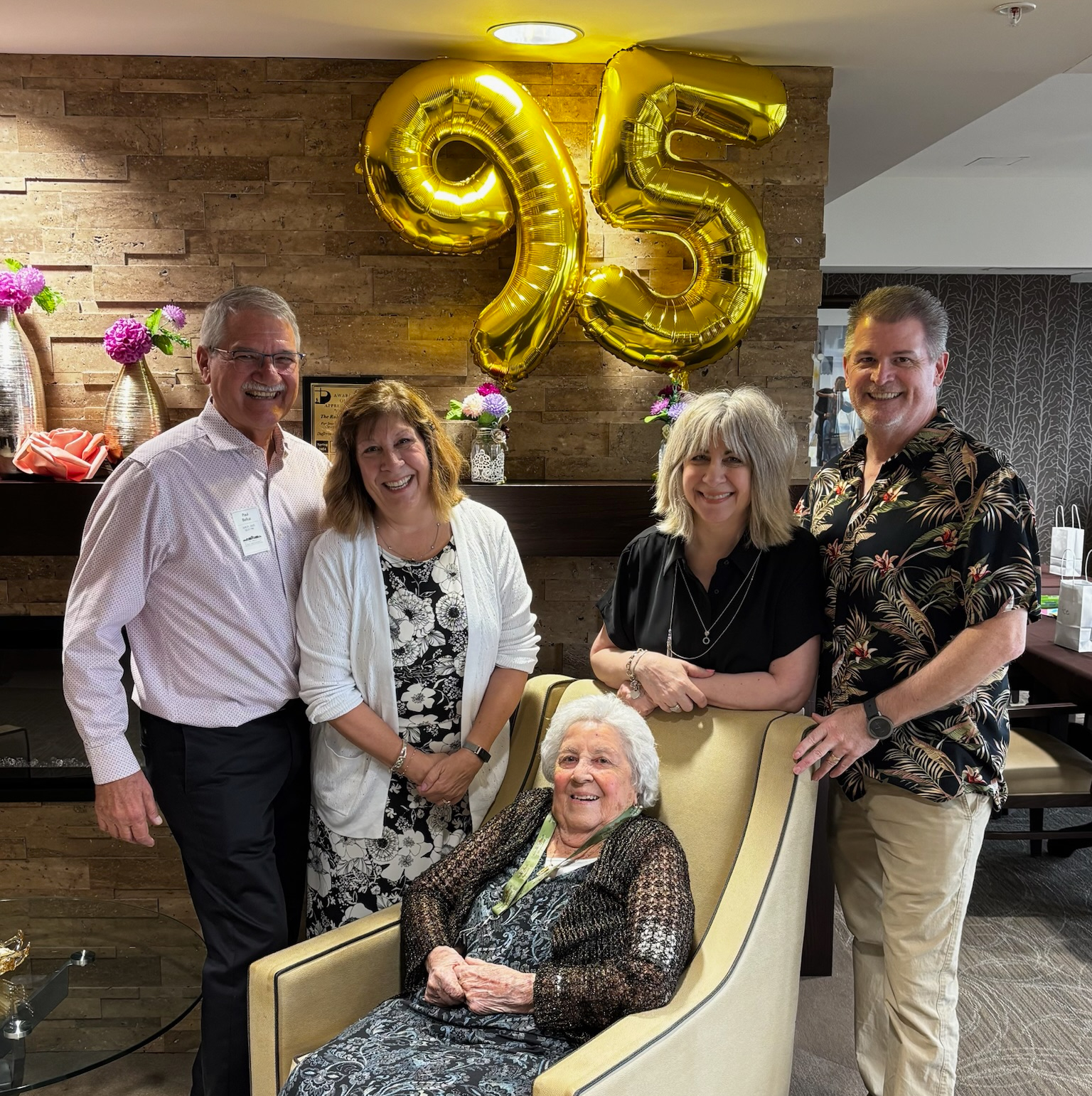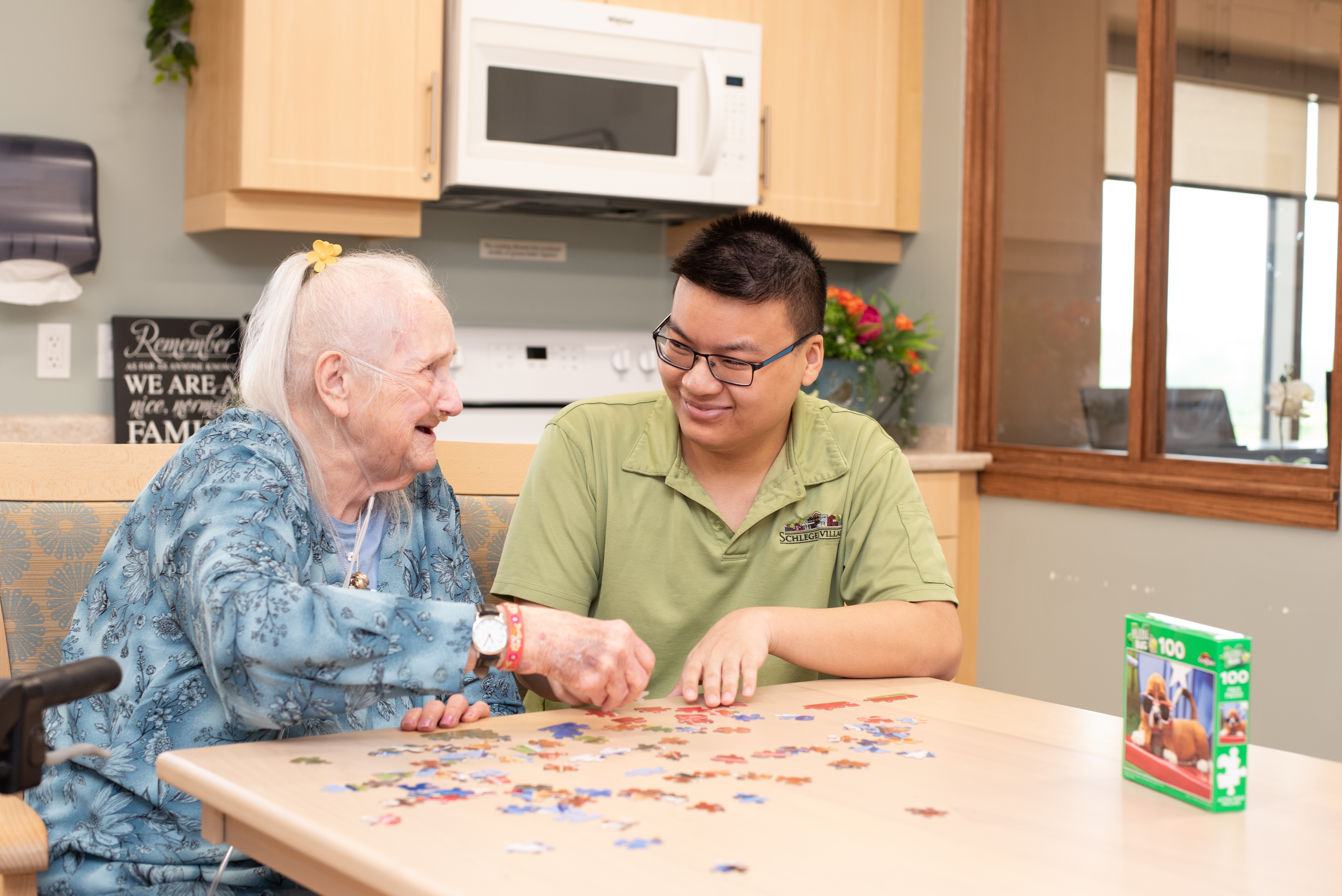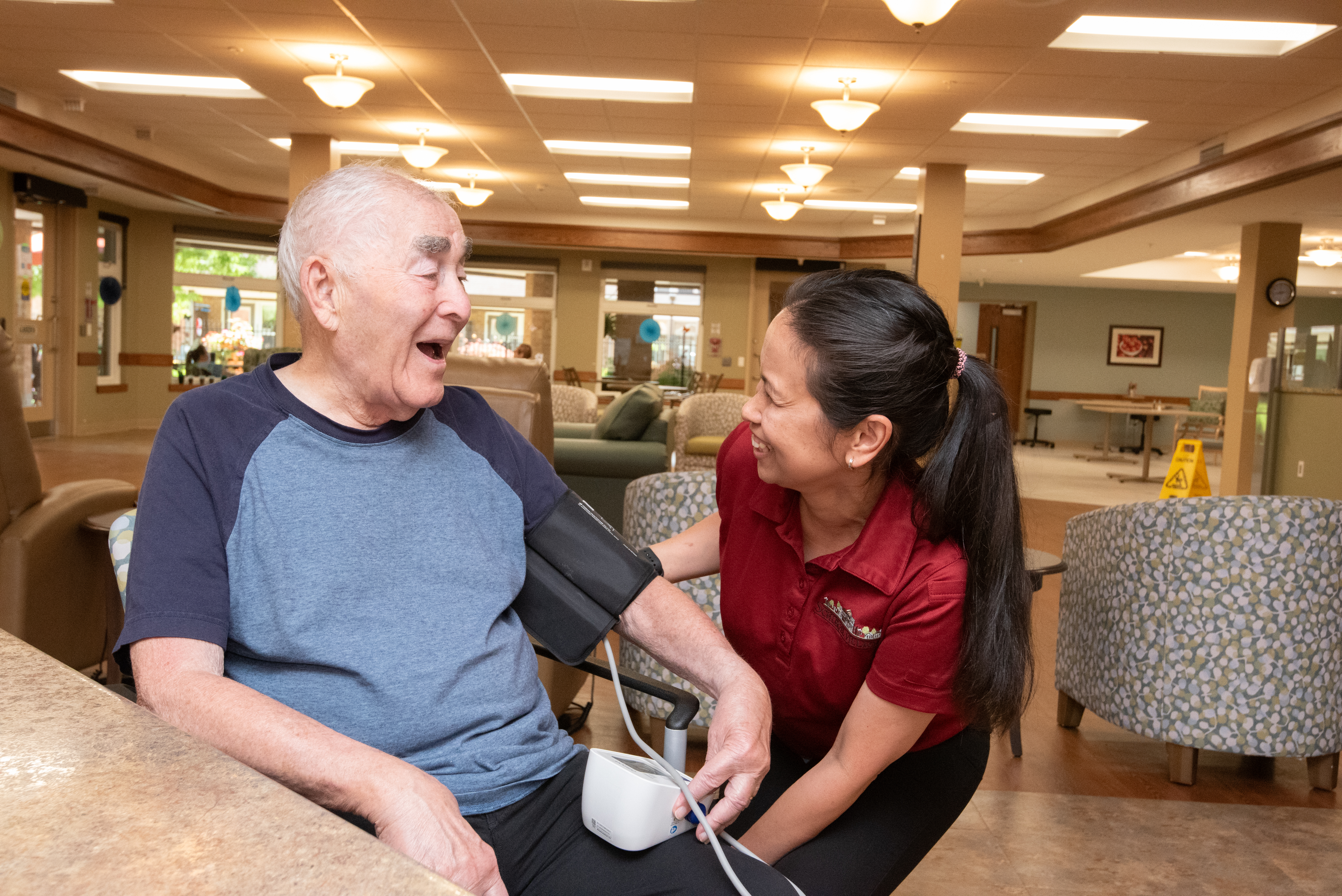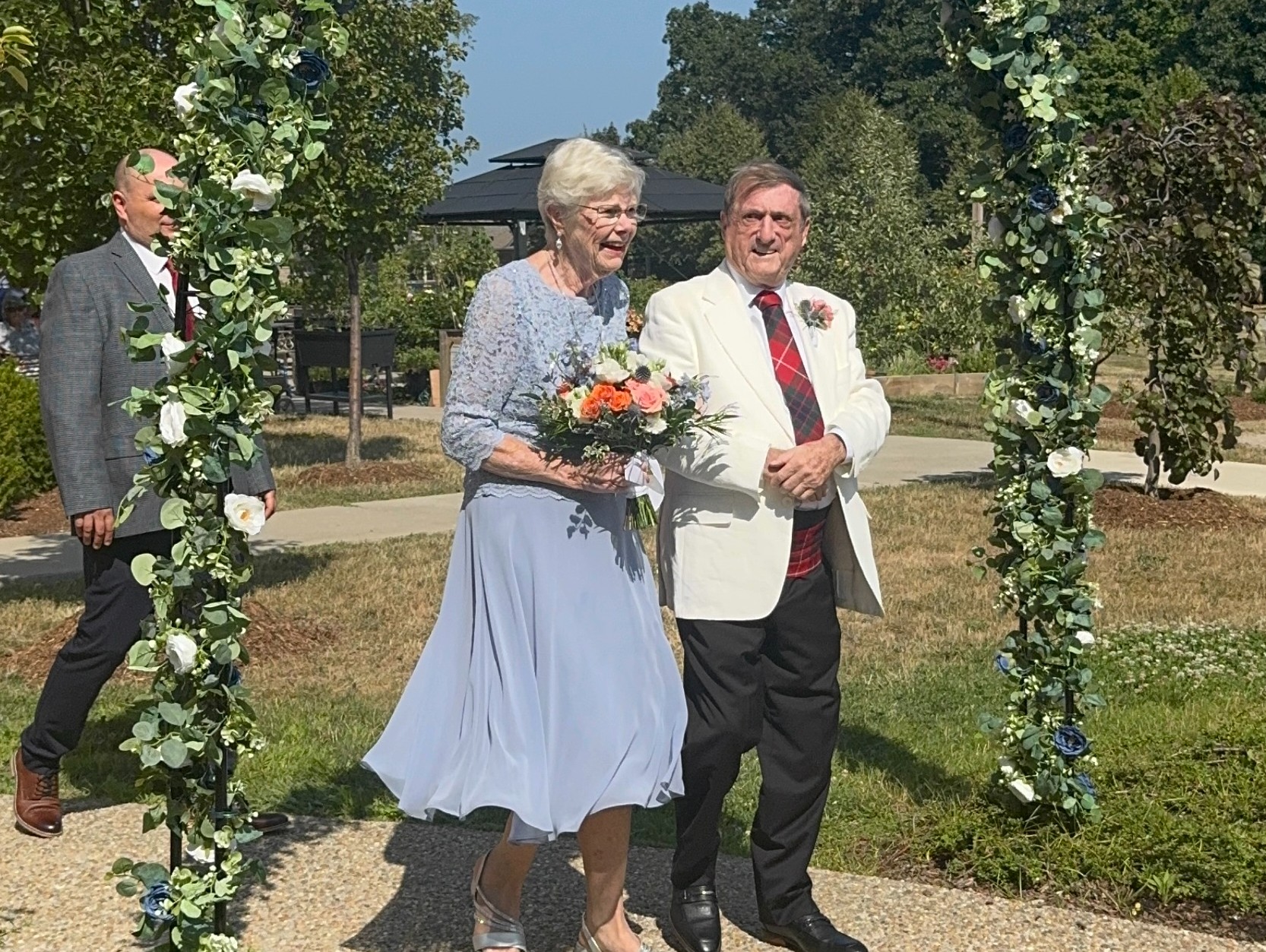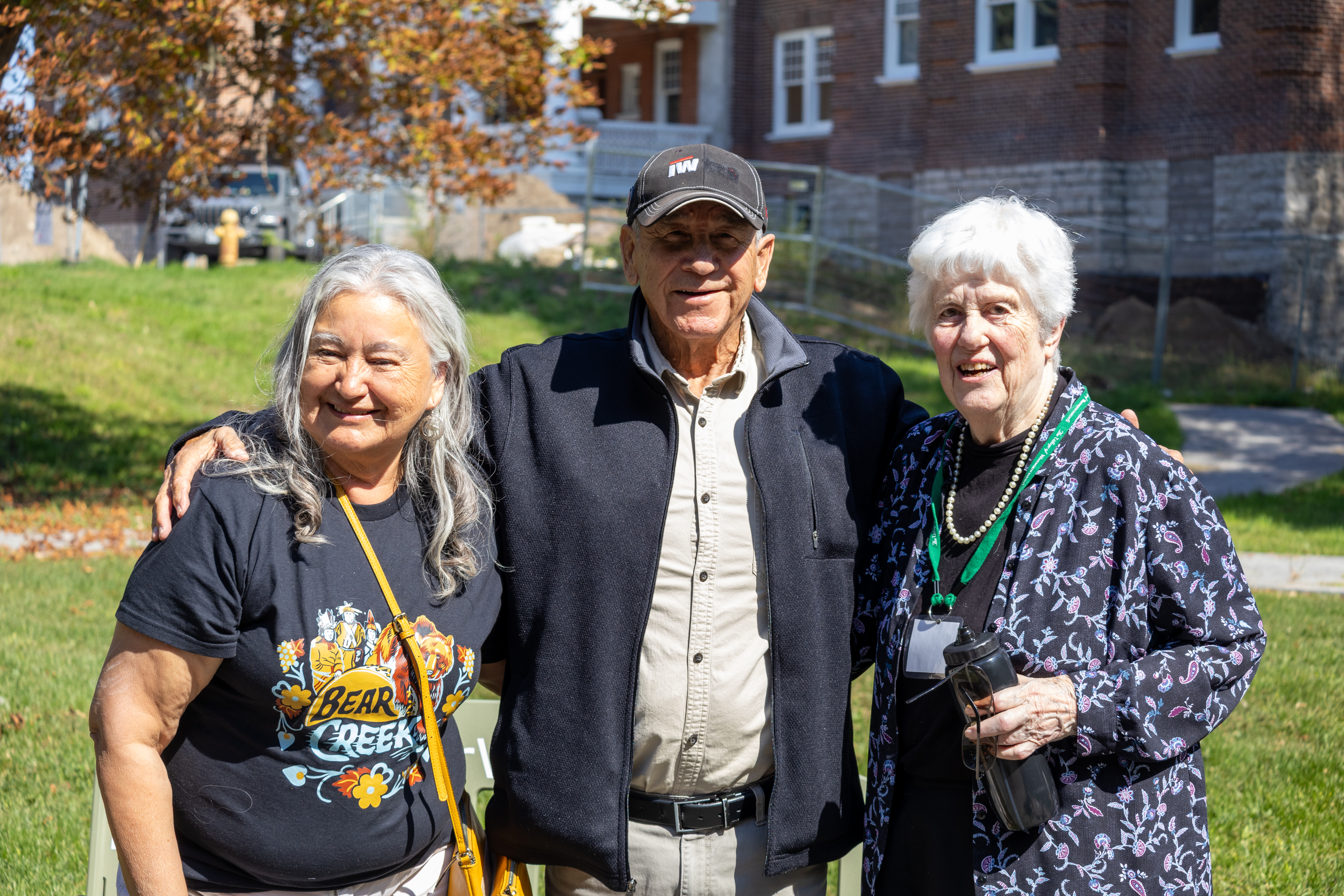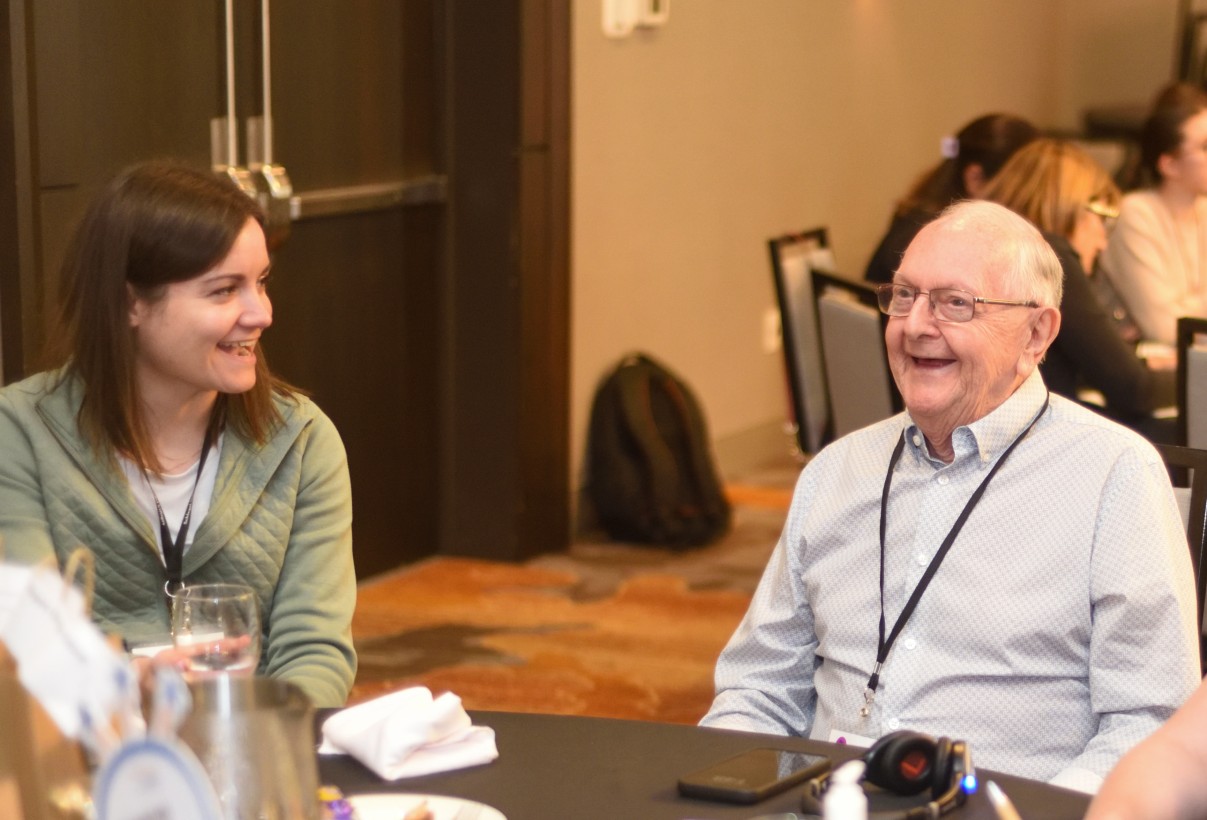Almost immediately after Barry Hickling moved into his first long-term care home, he took an interest in the idea of residents’ council. Throughout his life, he’s been an advocate supporting neighbours in his community who, for any number of reasons, have a quiet voice when speaking for themselves; residents’ council offered a place for him to continue that role.

“The primary responsibility of any organization
is education,” says Aspen Lake's Barry Hickling.
Education will be a major focus for Barry in his
new role with the Ontario Association of Residents' Councils.
Some five years after moving into The Village of Aspen Lake in Windsor, where he has been an active, ongoing council member, Barry has taken on a new role representing long-term care residents not just in his village but across the province. As a delegate board member with the Ontario Association of Residents’ Councils, Barry will add his experience, his inquisitive nature and his constant thirst for knowledge to a strong group of people working to enhance the lives of all who make their home in a long-term care setting in Ontario.
Barry says he was drawn to the fact that for the past number of years, the OARC has focused it efforts on promoting concepts of culture change in Ontario’s long-term care homes and pushing for more resident-centred approaches to support. Schlegel Villages, he points out, has made significant progress in its culture change efforts, and Barry hopes to add his insights on the subject to the board’s perspective. He’ll be joining another Schlegel Villages resident, vice-president David Kent of The Village of Erin Meadows, who has served the OARC with distinction for several years.
The main challenge facing the sector, Barry points out, is the fact that in order to realize positive progress there must first be enough people to fill all the job vacancies, and they must be the right people.
“The crisis right now,” Barry says, “is a tremendous shortage of PSWs and nurses and the question that is raised is: how do you propose to fill that gap?”
It’s a question facing the government as well as the province’s education system and long-term care providers, and Barry believes the OARC has a role to play in encouraging all parties to work together to find solutions through education.
“The primary responsibility of any organization is education,” he says. “If we’re not informing the public of the crisis now, then they’re just not aware. People are destroyed by lack of knowledge.”
For his part, Barry is going to focus on his own education as he leaps into his new role as a delegate board member, which is set for an initial one-year term.
“I will commit to learning as much as I can,” Barry says, and in that process when I have the opportunity to speak, I will make my thoughts known as long as I know they’re rational and they’re based in absolute reality, but I won’t know that if I’m not educated.”
Click here to learn more about the Ontario Association of Residents’ Councils.
- Previous
- View All News
- Next
